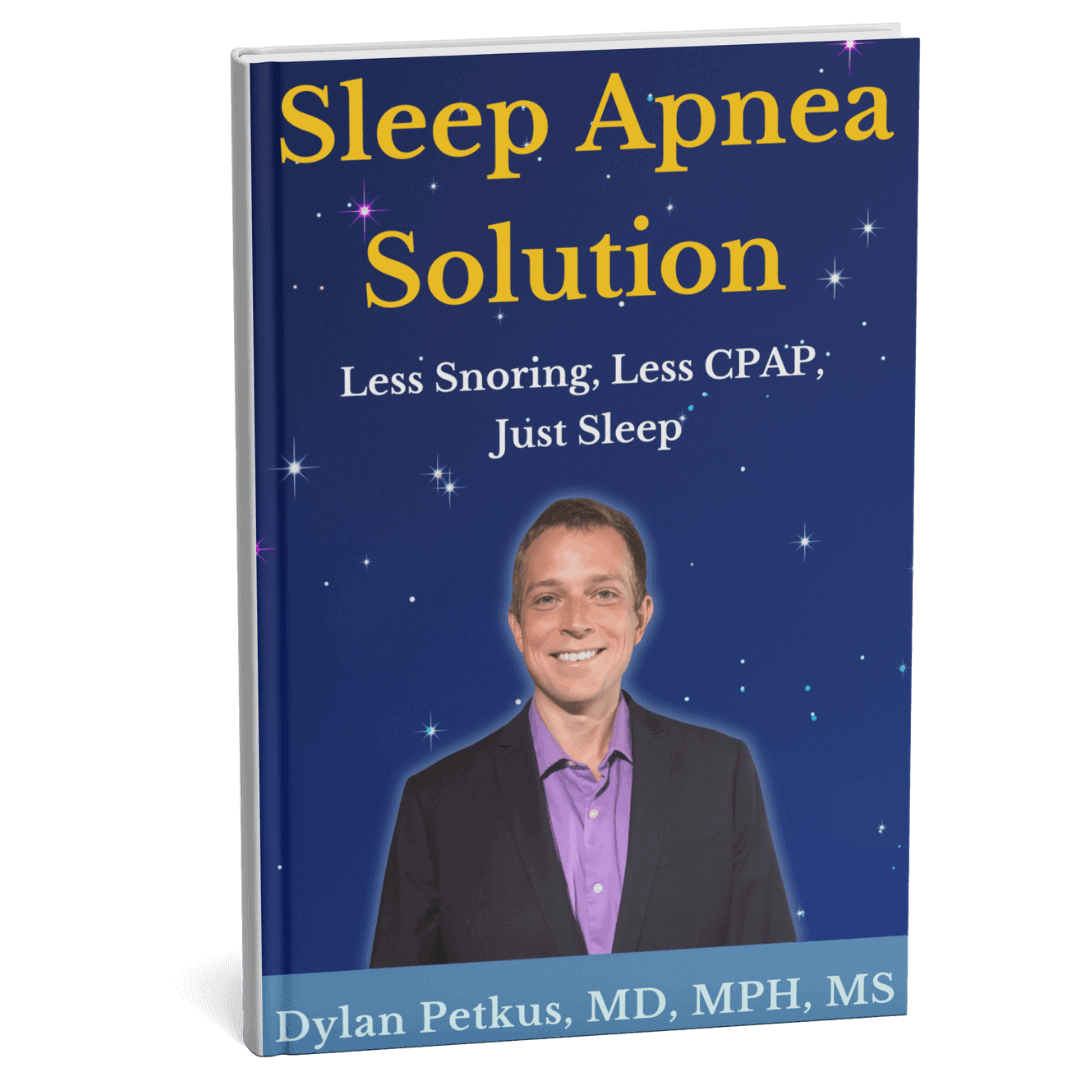Sleep apnea can cause anxiety, but not all cases of anxiety are due to sleep apnea. The connection between the two disorders can be described through several concepts, including: psychological stress, sleep disruption, and effects on brain function among others.
Sleep apnea causes both physical and psychological effects. For instance, it’ll leave you feeling exhausted, confused, and sleepy during the day.
Some of the common psychological effects of sleep apnea include a lack of concentration, depression, mood swings, and brain fog. One of the major concerns about this sleep disorder is its association with anxiety and panic attacks.
In this article, we’ll discuss the link between sleep apnea and anxiety and why you should try a new solution for sleep apnea.
How Is Anxiety Related to Sleep Apnea?
Here are some reasons why sleep apnea could be the reason you’re feeling anxious or experiencing panic attacks:
Stress
Sleep apnea causes recurring incidents of low levels of oxygen and high levels of carbon dioxide in your blood. This triggers stress response processes in your body like the flight-or-fight response, resulting in increased anxiety.
Can sleep apnea cause headaches? Unfortunately, it can. Reduced levels of oxygen in your blood can result in secondary headaches like high-altitude headaches (HAH) and headaches caused by serious mountain sickness. Furthermore, too much CO2 in your blood causes headaches, shortness of breath, and daytime sleepiness.

Disrupted Sleep
Recurrent sleep disruptions caused by blocked airways lead to poor sleep quality. These disruptions will eventually lead to anxiety and mood swings.
You might feel nervous or fearful before you go to bed every night because you’re not sure if you’ll get enough rest. The experience of waking up gasping for air due to blocked airways can also make you anxious.
Poor Brain Function
Disrupted sleep and oxygen deficiency can negatively impact your cognitive functioning, affecting critical areas of your brain, especially those involved in regulating your moods and processing emotions.
This leaves you more susceptible to anxiety and other psychological issues. In extreme cases, a lack of oxygen in your blood can damage your brain. Signs of brain damage include memory problems, poor concentration, and mood swings.

Related Disorders
Anxiety can cause various sleep problems like difficulty falling asleep, inability to stay asleep, and insomnia. These disorders will make your anxiety worse, leading to a never-ending cycle of sleep apnea and anxiety. These conditions can aggravate each other.
Other Common Symptoms of Sleep Apnea
There are many misconceptions about sleep apnea‒mainly because it presents the same symptoms as other sleep disorders like insomnia. The best way to distinguish sleep apnea from other sleep disorders is the sounds involved.
So, what does sleep apnea sound like? Here are the most common sounds associated with sleep apnea:
- Loud snoring: This is a croaky sound that happens when you attempt to breathe in and out of blocked airways.
- Gasping or choking: When your airways are blocked, you’ll wake up gasping for air. This is very startling and a major cause of anxiety as you wake up struggling to breathe.
- Snorting: You may snort as you try to open your airway and start breathing again. This occurs frequently when you have sleep apnea.
The Bottom Line
Overcoming sleep apnea is a multifaceted process that involves training and lifestyle changes. Previously, the only way to deal with this disorder was through a continuous positive airway pressure (CPAP) machine.
However, medical experts have discovered more effective and less complicated ways of overcoming sleep apnea, including breathing routine training, physical exercises, and dietary changes among others. Check out Optimal Circadian Health’s ebook, Sleep Apnea Solution, to learn more about these procedures!



